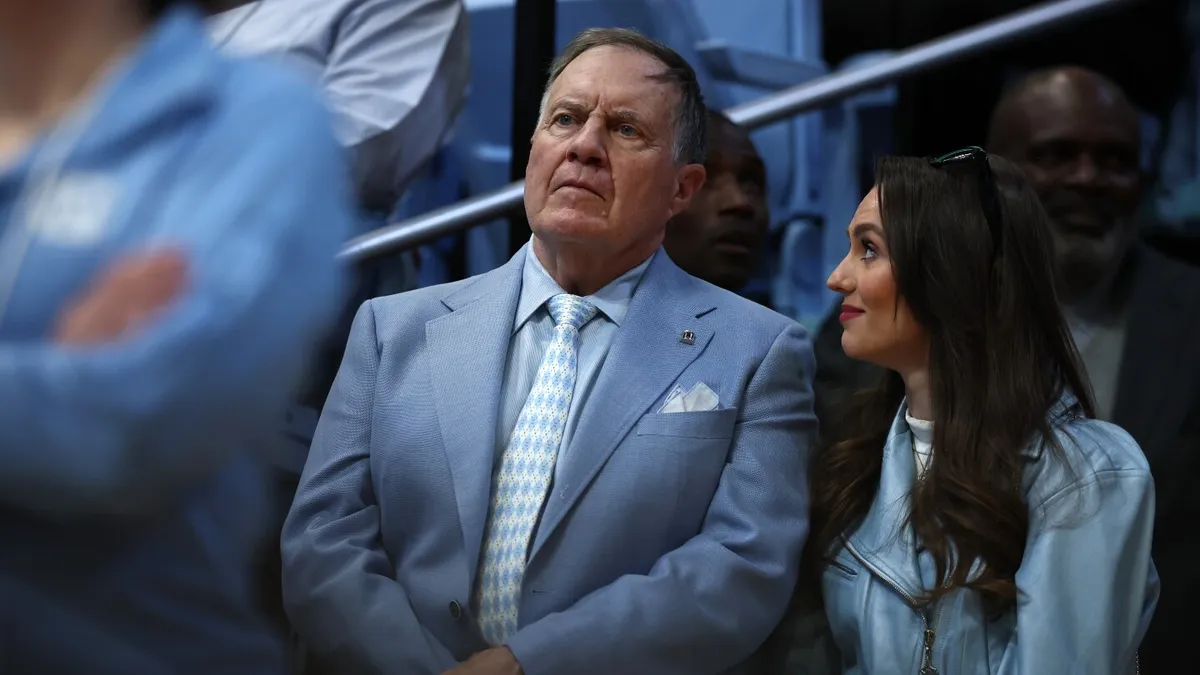
When faced with criticism for making objectively bad decisions, individuals often find themselves at a crossroads, choosing between two main paths: either they can start making better decisions or they can double down on their previous mistakes. Recently, this dilemma has surfaced in the realm of sports as Bill Belichick’s girlfriend, Jordon Hudson, addressed the backlash surrounding her interruptions during Belichick’s softball interview with CBS Mornings.
In response to the criticism, Hudson took to Instagram to share an email dated April 10 from Belichick, in which he discussed his forthcoming book. She accompanied the post with the message: “Full statement to be released later today.” The email was sent to several recipients, including “David,” Hudson, “Jofie,” “Michael,” literary agent Richard Pine, and Berj Najarian, chief of staff at Boston College. The timing of the email suggests it was a reaction to a review of Belichick's book by Ben Volin of the Boston Globe, which was also published on April 10.
In the email, Belichick expressed his expectations regarding media coverage, stating, “This is about what I expected from the media. We went through how important it was for me to put ‘I f*ed up’ in the book, and of course, that is the feature of this article.” He elaborated on the media's tendency to highlight sensational phrases for clickbait purposes, noting that out of “260+ pages,” it was no surprise that the phrase “I f*ed up” was the focus of the coverage.
Belichick further pointed out the importance of having control over how his book is presented, emphasizing that he hoped to promote it authentically. He expressed concerns about media appearances that might focus more on his past mistakes rather than the professional insights he intended to share. “This book is about how I did my job, and lessons from my 50 years in and around the NFL,” he stated, indicating that he wants it to be more than just a recap of his errors.
While Belichick is undoubtedly a seasoned football strategist, it appears he struggles with the nuances of publicity. His email suggests a desire for control over the narrative surrounding his book, yet he seems to be unaware of the broader implications of his interviews and media engagements. The recent incident during CBS Mornings highlighted this disconnect, as his girlfriend’s actions turned what could have been a routine interview into a spectacle.
As public opinion continues to shape the narrative around him, it remains to be seen how Belichick's decisions—both on and off the field—will impact his legacy. His girlfriend's actions and his responses to criticism could either pave the way for a successful return to the NFL or tarnish his reputation indefinitely. If Belichick is serious about controlling the narrative, he may need to reconsider his approach to promoting his book and how he navigates media attention.
In conclusion, if Belichick wishes to avoid further scrutiny and ensure a favorable reception for his book, he might consider taking a step back from the publicity game altogether. As he might have advised a player caught up in distractions, “Doesn’t that guy have better things to do?”